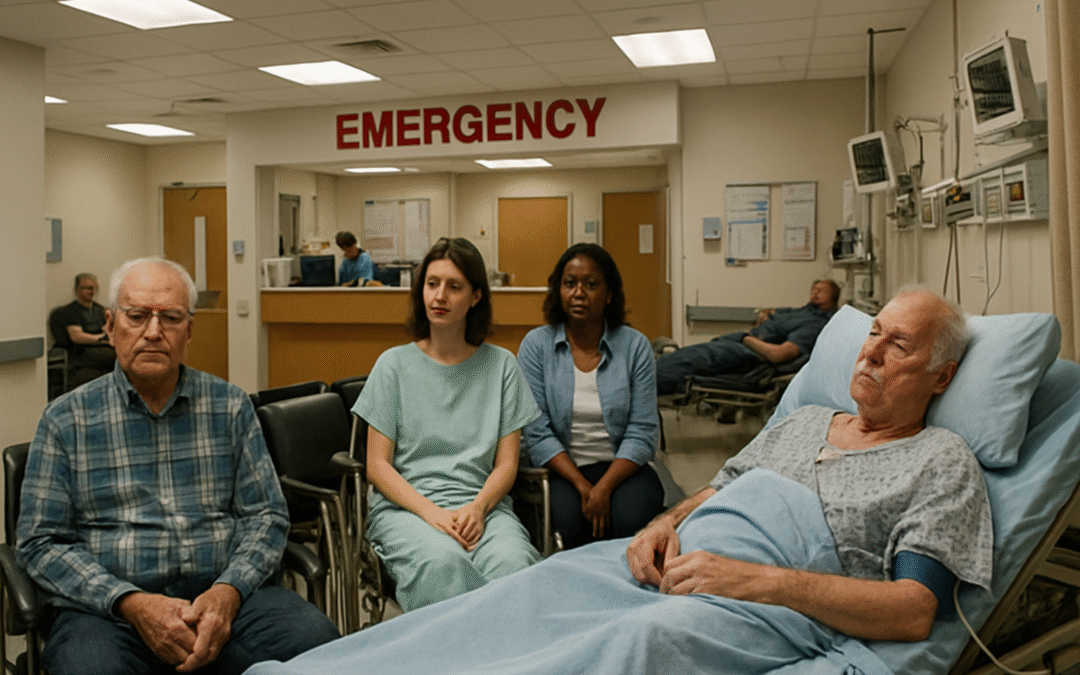As many Australians endure a cold winter, some of us are dreaming of strolling through Paris, cruising the Amalfi Coast, or exploring the Scottish Highlands. For many Australians, Europe—and especially the UK—is a favourite destination for leisure travel. But while you’re busy planning your itinerary, it’s just as important to think about your health while overseas.
Fortunately, Australians heading to the UK and several European countries can access essential public health care thanks to Reciprocal Health Care Agreements (RHCAs). These agreements mean that if you get sick or injured while travelling, you may be eligible for subsidised or even free medical treatment.
What Are Reciprocal Health Care Agreements?
Australia has signed RHCAs with 11 countries, including many in Europe. These agreements allow Australians to receive medically necessary treatment in public health systems while temporarily visiting.
✅ “Medically necessary” means care that can’t reasonably wait until you return home—such as sudden illness, injury, or emergency treatment.
Which European Countries Are Covered?
As of 2025, the following European nations have RHCAs with Australia:
- United Kingdom
- Republic of Ireland
- Sweden
- Finland
- Norway
- Belgium
- Netherlands
- Italy
- Malta
- Slovenia
Each country’s agreement is slightly different. For example:
- In the UK, you can access NHS services like locals—GP visits, hospital treatment, and emergency care.
- In Italy and Malta, the agreement applies for visits up to 6 months and typically covers urgent care in public hospitals.
- In Ireland, treatment is limited to emergency services provided in public hospitals.
More details by country:
👉 Services Australia – Countries with reciprocal agreements
What’s Covered (and What’s Not)?
Typically covered:
- Public hospital treatment
- Emergency care
- GP visits (in some countries)
- Subsidised medicines (varies by country)
Not covered:
- Private hospital or specialist treatment
- Ambulance services (in some countries)
- Medical evacuation or repatriation
- Elective or ongoing medical care
These agreements are designed as a safety net—not a replacement for travel insurance.
Who’s Eligible?
To benefit from an RHCA while in Europe, you must:
- Be an Australian citizen or permanent resident
- Be enrolled in Medicare
- Present a valid Medicare card and passport
- Be travelling temporarily (not living or working long-term)
You’ll usually need to show these documents at a public hospital or clinic to receive subsidised care.
Don’t Skip Travel Insurance
Even though RHCAs provide peace of mind, they only cover basic treatment. They won’t help if your luggage is stolen, flights are cancelled, or you need a private hospital stay.
Comprehensive travel insurance is still a must.
Final Tips Before You Go
- Check what’s covered in your destination country:
👉 Services Australia – Reciprocal Health Care Details - Carry your Medicare card and passport while travelling.
- Buy travel insurance—for everything the RHCA doesn’t cover.
- Know what to do in an emergency—have a local hospital or embassy contact saved in your phone.
In Summary
If you’re heading to the UK or Europe, reciprocal health care agreements can offer vital access to public health services in an emergency. They’re not a replacement for travel insurance—but they can save you time, stress, and money if the unexpected happens.
So book the flight, pack your Medicare card, and travel with confidence!

